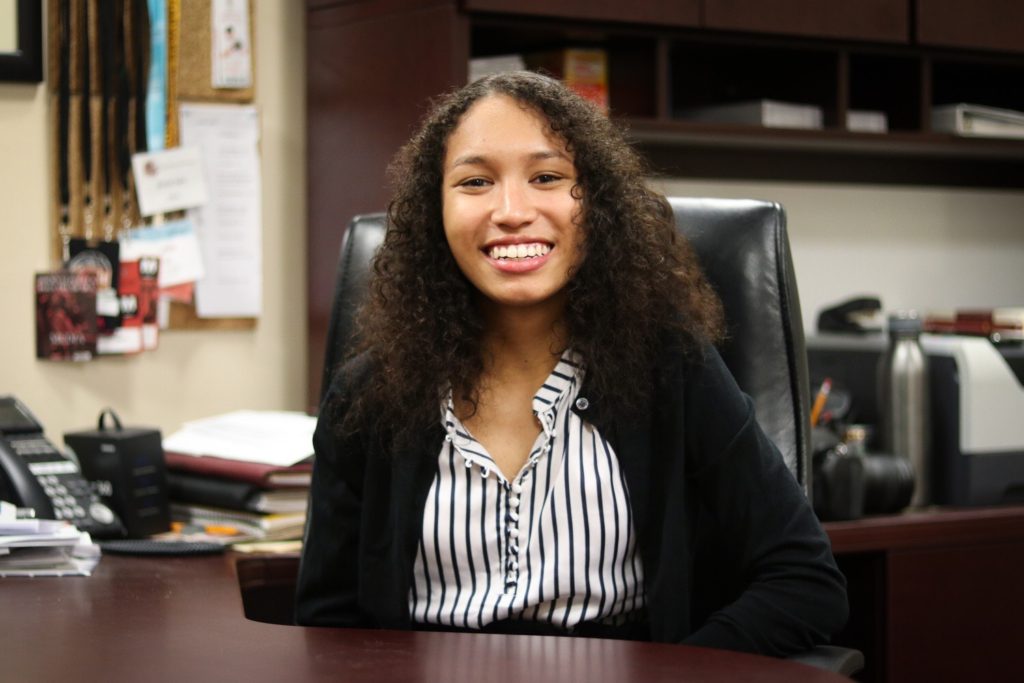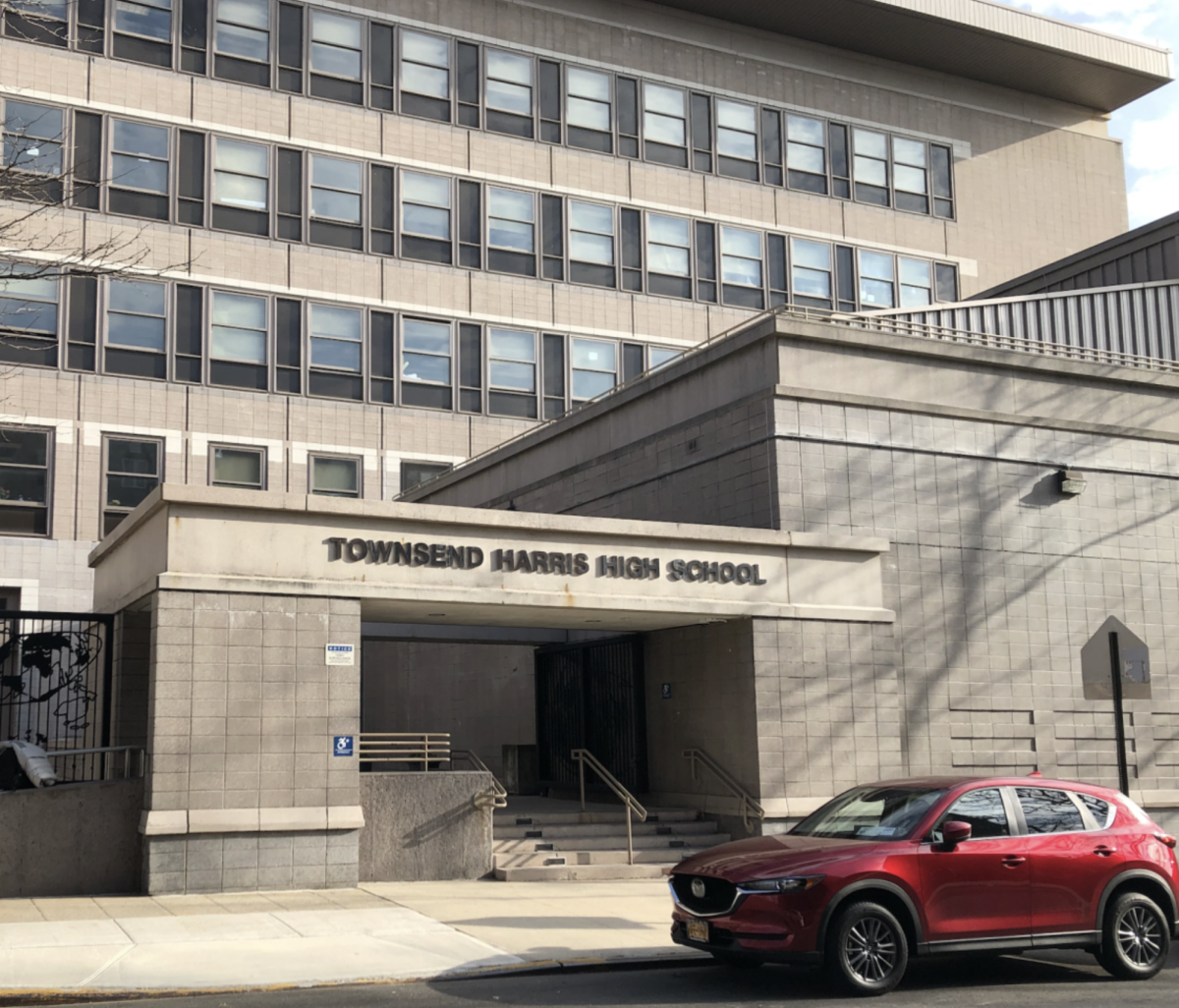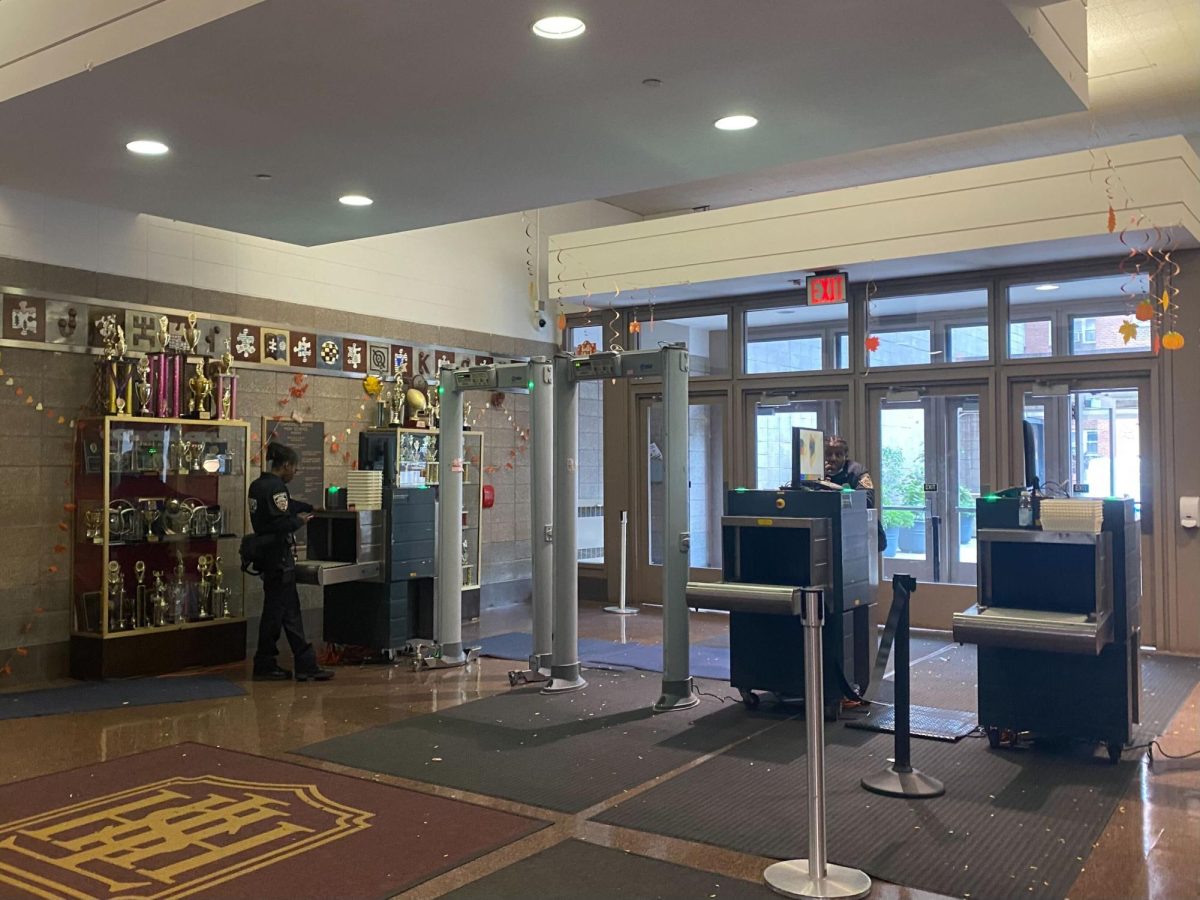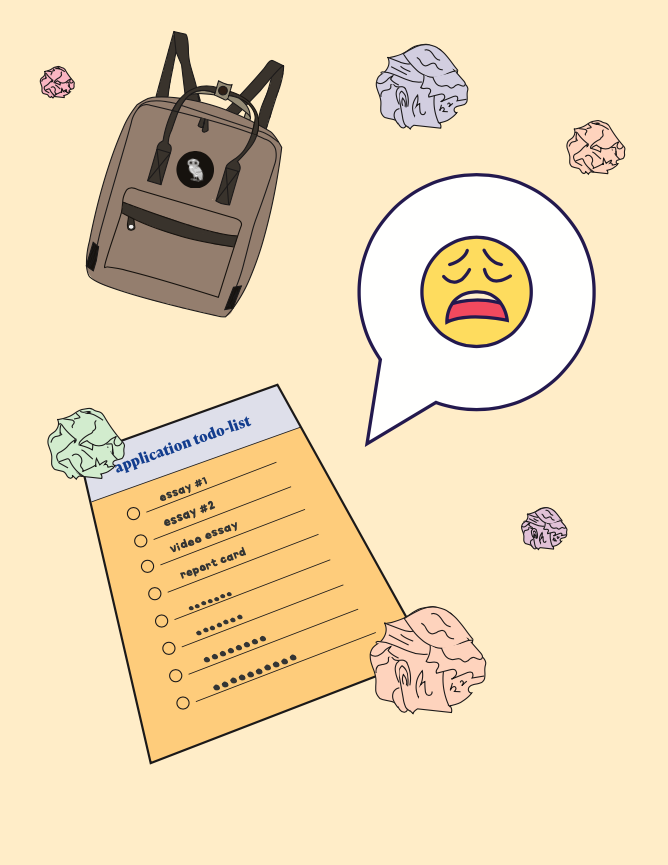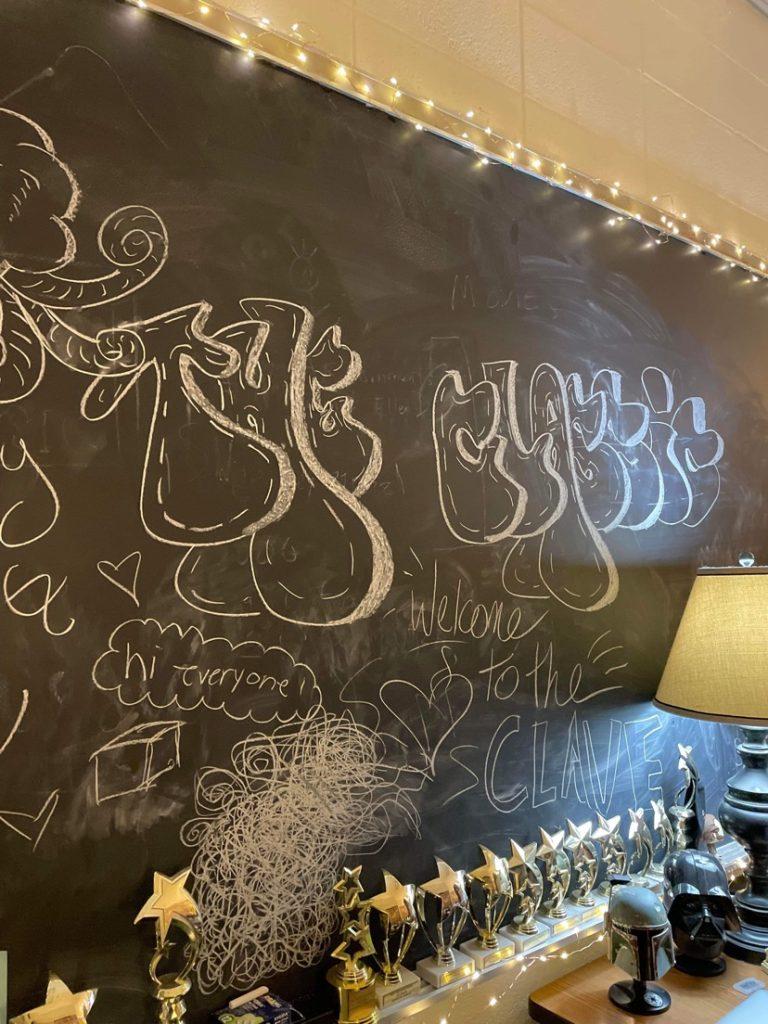
Recently, Kristine Guillaume made news across the country by being the first black woman to lead the historic newspaper at Harvard University (a position held by major figures of prominence, including President Franklin Roosevelt). Kristine graduated from Townsend Harris High School in 2016. She is both a former Phoenix editor-in-chief and a former Classic reporter. To offer our congratulations on an alumna’s achievements, we have Classic editor-in-chief and Kristine’s sister, Isabelle Guillaume, who shares her personal response to the news:
In her middle school years, Townsend Harris alum Kristine Guillaume lost all her elections for office. Every October, I would watch her prepare for her campaign by writing speeches and typing up posters (on Microsoft Powerpoint with bland, yet pleasing, color schemes, unlike those of her peers’ big and sparkly posters). Truthfully, when I heard her ideas as opposed to those of her opponents, I thought she deserved to win; the pattern of her success— or lack thereof— however, always made it clear to me that her chances were low.
When Kristine told me she was running for president of The Harvard Crimson, I was foolish enough to carry the same logic. But, perhaps at the grace of the differences among the criteria held by middle schoolers, and that held by the board of Cambridge’s daily newspaper, Kristine proved me wrong.
Before becoming president, Kristine worked for The Crimson at Harvard University as a news reporter. She was the race and diversity junior beat reporter for the news board, a position which allowed her to cover issues such as undocumented student activism on campus. Later, as the central administration reporter for her senior beat, Kristine covered the transition in university presidency from former university president Drew Faust to current university president Lawrence Bacow.
“I think I really just loved working with people in the building and getting to know people who were on different parts of the staff than I was,” Kristine said. “In my sophomore spring to junior fall, I got to be the Diversity and Inclusivity chair along with two amazing co-chairs, and that’s where I really got to work on different projects in the building, and I really liked bringing different people together and innovating and finding new ways to improve the Crimson. I think that’s what really inspired me to run.”
When I took Kristine’s place as the constant loser of our middle school’s elections, I would see Kristine less and less every year. In her freshman and sophomore years, she would blast her music from our house’s study as she did her homework well into the early morning. In her junior year, she became a co-editor-in-chief of The Phoenix, and from that point on, I didn’t feel any of the usual vibrations that resulted from her loud music. She spent all her time in room 403, which she fondly called “the Meadow,” passionately running Townsend’s literary magazine for her last two years of high school. Back then, I did not understand why she put so much work into her literary magazine, but even I could see the amount of effort she put into leading the publication and producing art.
“I think I owe a lot to my high school experience. In my freshman year [of college], I was the Editor-in-Chief of Let’s Go travel guides, and that was a huge learning curve, but I felt that my experience with The Phoenix had really helped me to think about ‘Ok, what is a vision for our book? How do you put a book together? What does a book timeline look like? How do we make a cohesive product? How do we think about style and font and style guides and consistency in design and all of these things?’” Kristine continued, “Managing The Phoenix helped me logistically in my past experiences here at Harvard, but also now will help me at The Crimson…. At The Phoenix, I think I managed 100-something staff members; here I’m managing 320 active editors. Transferring those skills, I think, will be very important.”
Despite heading a magazine of fictional literature, Kristine fulfilled her passion for journalism at Townsend as well by writing for the sports department of The Classic and taking the journalism elective. “The thing about reporting is that it takes a long time to get your groove and understand how to properly do it…. Having the experience of being a sports reporter, interacting with students every day, doing an area of reporting that I haven’t done in college, and getting that alternative experience… then being able to translate those skills of knowing how to ask the right questions, knowing how to approach the right sources, being confident when approaching sources, knowing how to accurately report a story… knowing how to structure a story or things like that have really transferred here to my skills at The Crimson and have only developed further at The Crimson,” she said.
Kristine is the first black woman president of the famous publication, thus garnering national media coverage. She has been recognized by many public figures, such as Mayor Bill DeBlasio and California Senator and current presidential candidate Kamala Harris, as well as other big publications like The New York Times.
Although her newly-acquired fame is noteworthy, the real importance of Kristine’s becoming president finds its root in the impact it has had. “What I’ve been saying is that if my being elected to The Crimson presidency helps anyone bolster their own sense of belonging on The Crimson or on Harvard’s campus or beyond that…, then I think that will be great and I think that will make all the hard work that’s gotten into me running into this position worth it,” she explained. “I think that it can be very difficult… as a woman of color, as someone who comes from a marginalized background— whether we’re talking about socioeconomic status or sexuality or race or gender or any of those factors— navigate, when obviously the privileged preferences are white and male and thinking about sort of how you can find your place. So I think if it helps for people to see me being elected as something that affirms or validates their own experiences, then I think that’s the big takeaway from this.”
Going into her presidency, Kristine plans on incorporating this takeaway into her improving the publication. “Something that I’m responsible of… is promoting an inclusive culture at The Crimson for people of all different backgrounds. So thinking especially about diversity at The Crimson, ‘how can we improve it?’ ‘how can we make sure everyone feels welcome here regardless of the experiences that they come from?’”
When my sister and I were younger, my father always used to talk about how hard we would have to work in comparison to others, being black women in this society; in fact, he still talks about it today. At first, I did not really listen to him, as I wanted so desperately and naively to believe that days of racism and stereotyping were in the past. However, when Kristine got accepted into Harvard and people saw her success as a byproduct of Affirmative Action rather than of her determination and achievements, it became evident to me that society often only accepts black people’s success if it can connect it to race.
Kristine’s being elected continues to defy that norm. The Crimson’s board did not choose her to head on the basis of race; they picked her for her demonstrated passion, capability, and understanding of what needs to be done for the betterment of the paper.
It’s funny to think that the girl with whom I’ve had some of my biggest fights has become an inspiration to many around the world. We used to fight about such trivial things, from who knew more about Greek mythology to who was to shower first in the morning. Being the older sister, she always found a way to outsmart me; looking back on it, however, our arguments demonstrated that Kristine is someone to learn from rather than to pit oneself against.
All my life, I’ve been in my sister’s shadow. I went to the same elementary and middle school as she, and I go to her high school alma mater now. Every time I entered a school, teachers would point me out and talk to me about Kristine, expecting me to be just like her. Initially, this irked me; it seemed to me that people saw me not for my personality and achievements, but rather as a copy of her.
Sometimes it still seems that way.
But sometimes comparing me to her feels like the biggest compliment I could receive. Sure, the comparison may paint me out to be a terrible dancer and have a terribly contagious laugh, but more importantly, it compares me to one of the strongest, most passionate, and most intelligent women I know.
If Kristine hopes her successes can validate the experience of others then she should know how much it validates my belief that I too can become something great one day and inspire others just as she has done at such a young age.
More than that, her success validates those of us who toil away at high school publications hoping for future endeavors of significance, and we at The Classic wish her the best of luck as she takes on this history-making work.
Photo by Amy Y. Li/The Harvard Crimson


























